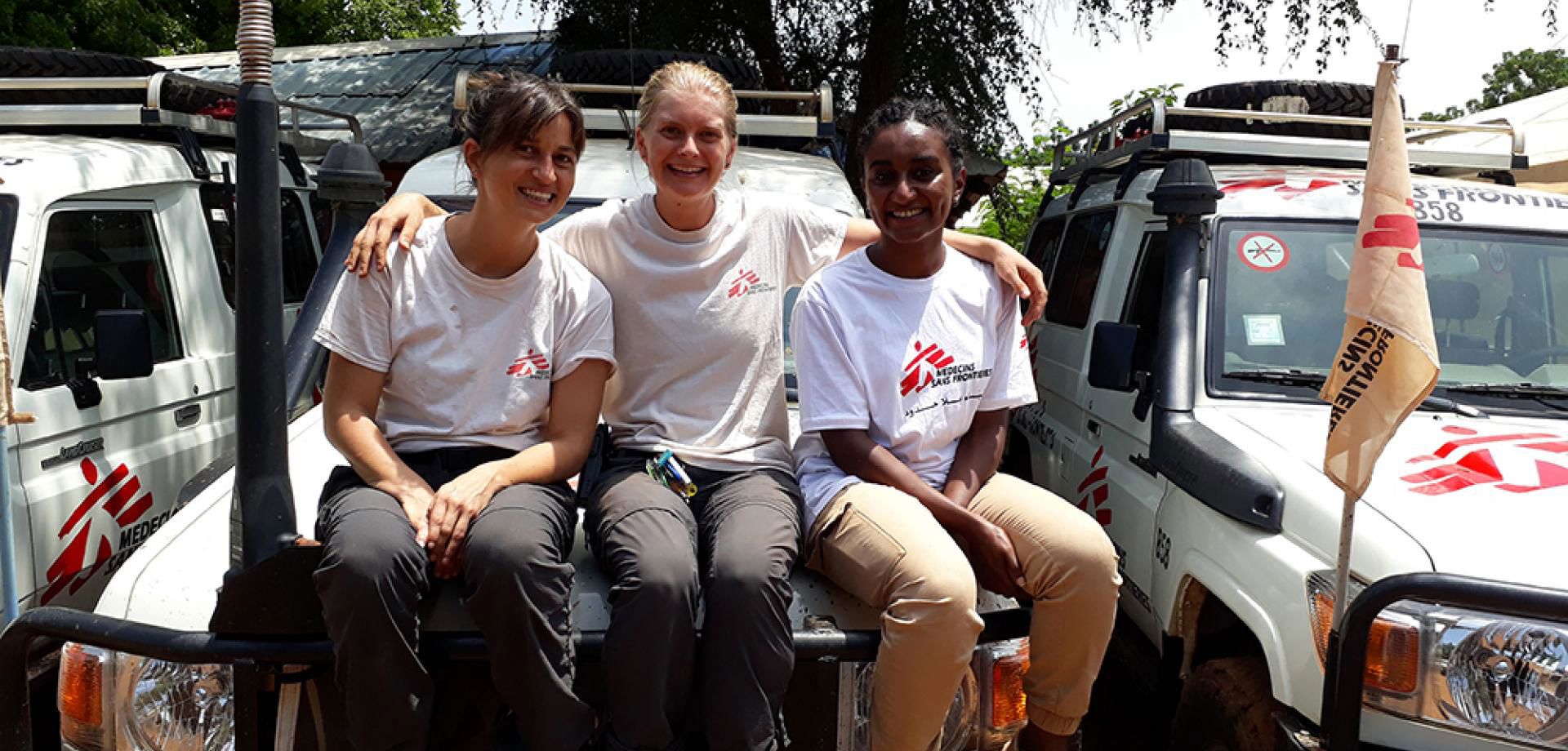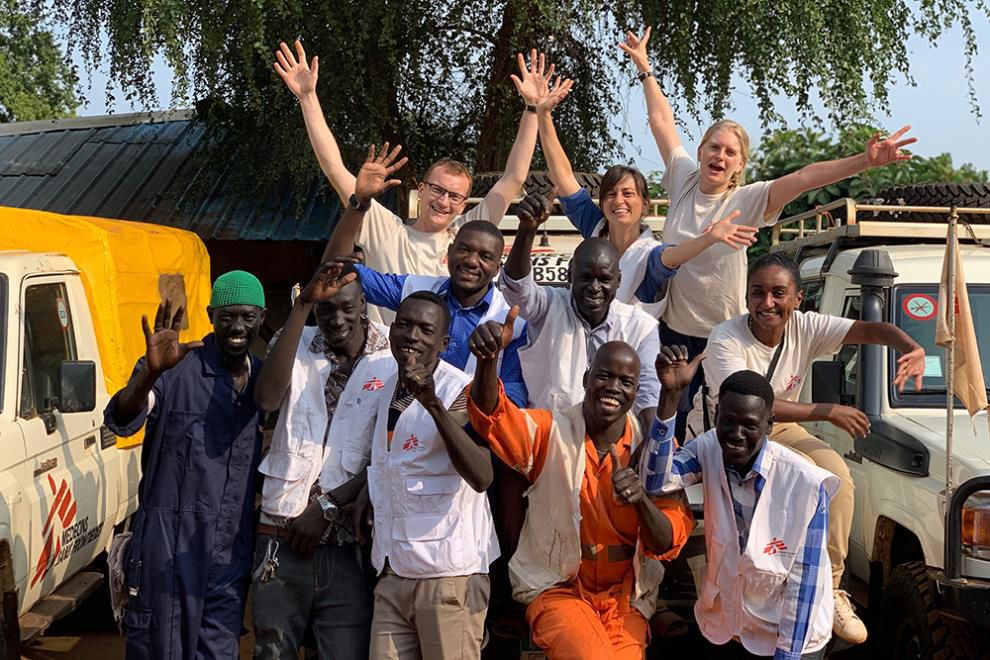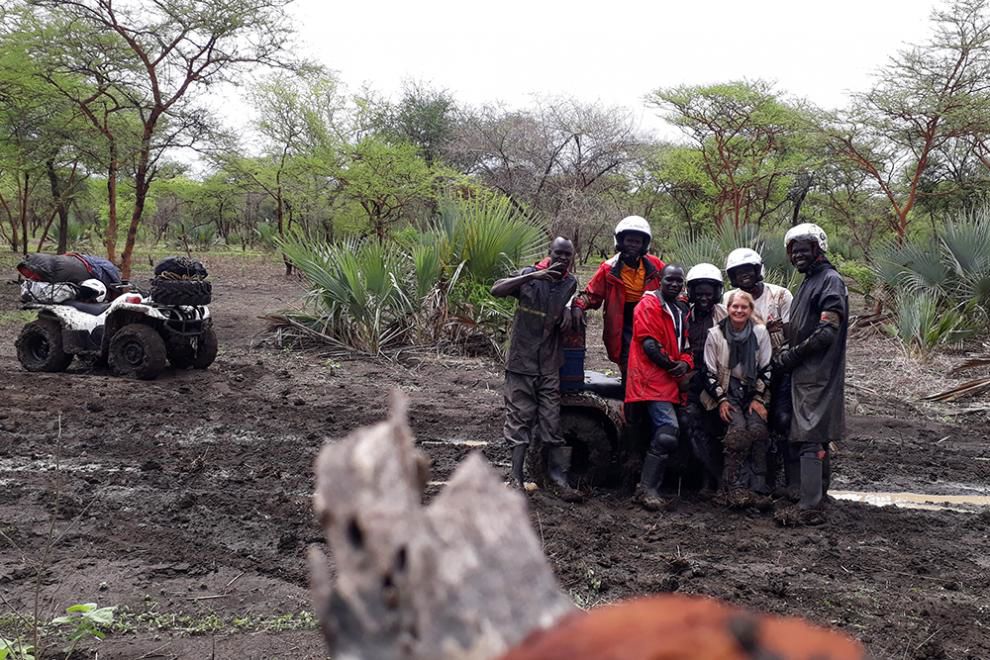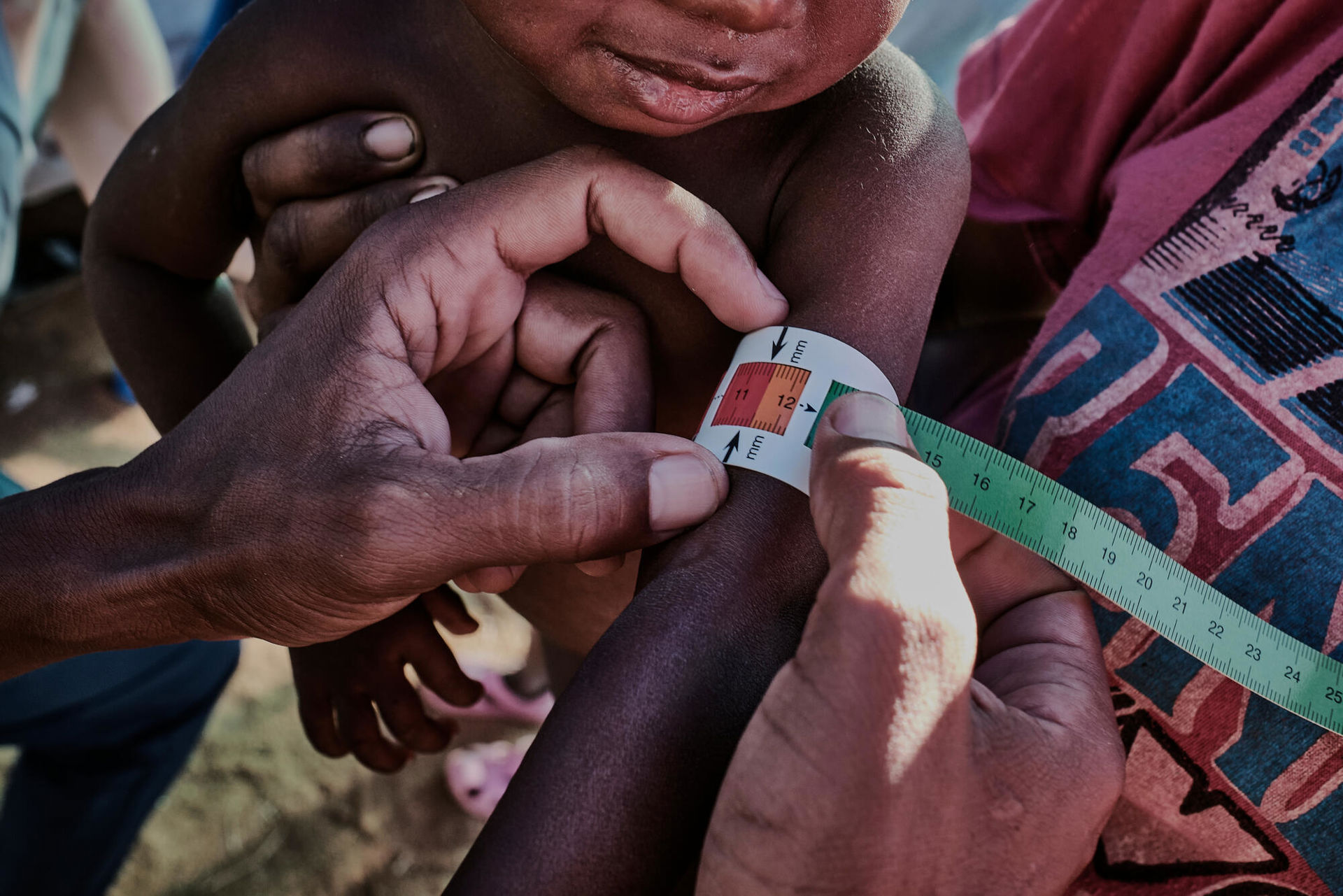Logistics is at the heart of MSF’s lifesaving work, ensuring our medical teams can respond quickly and effectively to any emergency. But, while MSF strives for gender equality, logistics is a male-dominated field. Breaking the mould, Belgian logistician Karla introduces us to three women making their mark in South Sudan.

Logistician Karla and her team. © MSF
In general, at MSF and beyond, logistics is a male-dominated field. For example, in the UK, men make up 83 percent of the 583 logisticians working for MSF.
In Maban, South Sudan, where I worked as an outreach logistics manager from March to September 2019, there were 100 staff members whose jobs fell under logistics: watchmen, drivers, mechanics, labourers, radio operators and logistics supervisors.
 卡拉和馬班的後勤團隊在一起。© MSF
卡拉和馬班的後勤團隊在一起。© MSF
Karla with the Maban logistics team © MSF
Usually, all 100 of these staff are men. However, when I was in Maban, the logistics team was led by three female supervisors.
"For the three of us, gender isn't an issue"
Mariam, Marine and I had the same objective when it came to our role as managers: we aspired to build the competencies of our team – to the point that we ourselves became redundant.
Meet the team
Mariam is on her first assignment with MSF. She is charged with managing the health facilities in Maban, as well as the international staff compound. She supervises a huge team of drivers, watchmen, radio operators and labourers – not for long though! The logistics supervisors are now taking the lead in many daily activities.
Marine has been a logistics team leader for the past 18 months. She oversees the logistics department and ensures that strategy is implemented, along with security measures.
Marine tells us to never give up! And if you feel you are about to… it is probably beer o’clock.
As for me? I’ve been supervising the Maban project outreach activities in all our locations. I’m ultra-motivated at all times! My secret? Be positive, patient and repeat!
MSF in Maban
In Maban, MSF runs a primary healthcare centre in Doro refugee camp and an outpatient department in Bunj Town, along with extensive outreach activities.
Our job in Maban is a real challenge; we have a large fleet of generators, hardtop and pickup trucks, a tractor, and quads that need to be maintained, scheduled and, finally, driven.
"We need to have a lot of patience, be ultra-flexible and constructive, and multi-task all day"
We have a cold chain to keep drugs and vaccines at the right temperature. We are building and using generators and battery backup systems to provide our teams with power and lighting. We are managing the information and communication technologies for the project, which is a well-known challenge in South Sudan.
Getting it done
In general, we delegate tasks, train and mentor staff, and oversee human resource management and strategic implementation. But sometimes we also like getting our hands dirty. We need to “get it done”.
If a pump breaks and we can fix it, that’s great. If we can’t fix it then it is our job to find someone who can.
 圖中這種四輛越野車,是無國界醫生在南蘇丹常用的交通工具之一。© MSF
圖中這種四輛越野車,是無國界醫生在南蘇丹常用的交通工具之一。© MSF
Quads are one of the many modes of transport MSF uses in South Sudan. © MSF
In theory, we try to do everything needed to support the medical team in ensuring the continuity of services. In practice, we need to have a lot of patience, be ultra-flexible and constructive, and multi-task all day.
The future of women in logistics
Encouragingly, MSF is creating viable opportunities to include women in “non-traditional” roles in the logistics department of the organisation.
Let’s hope that we can inspire and encourage other women to join MSF logistics.
For the three of us, gender isn't an issue.
Anyone considering the move into logistics should focus on building their own capacity. That is the best way to ensure you’re selected for a role based on your abilities.


